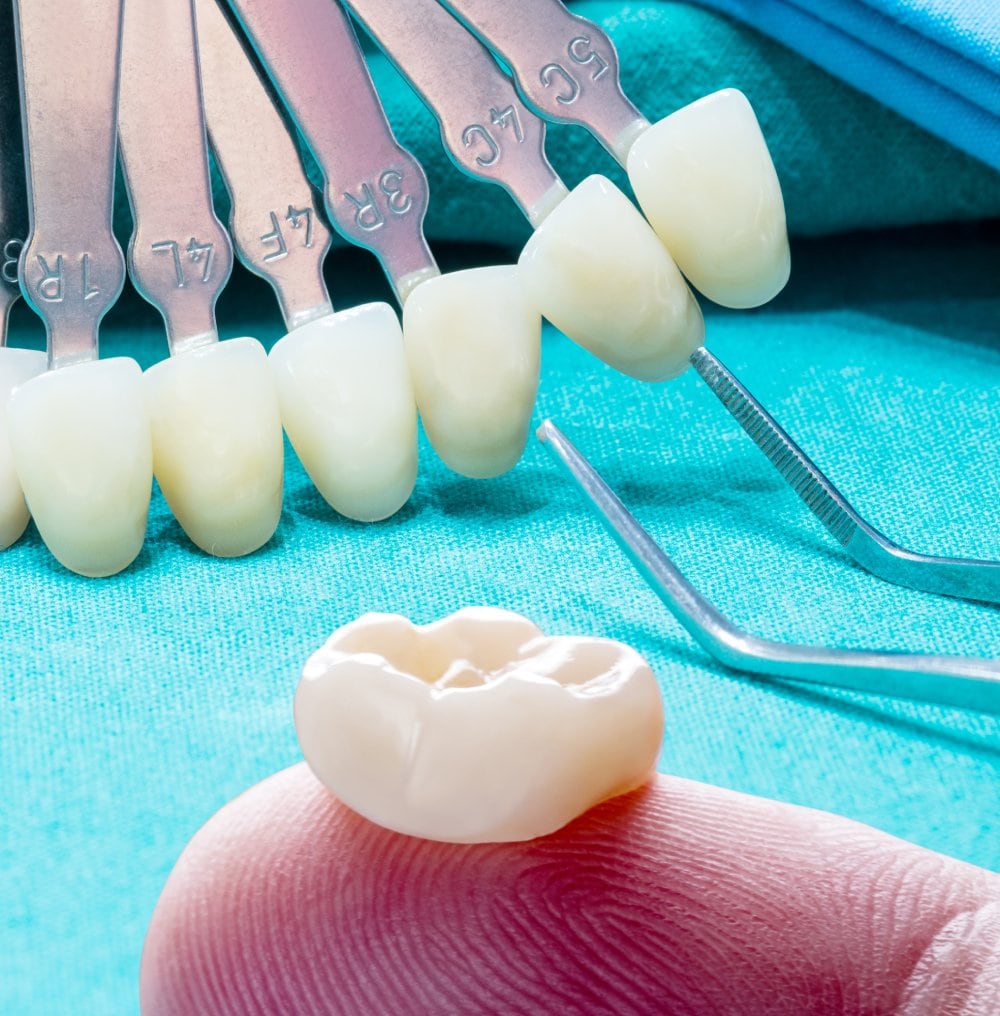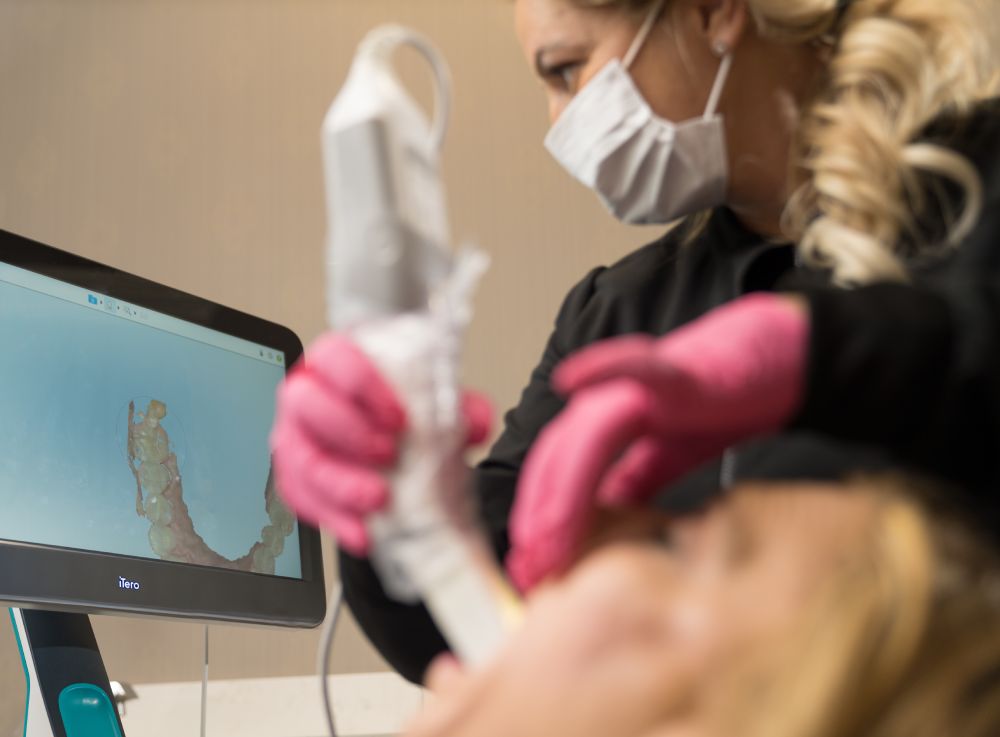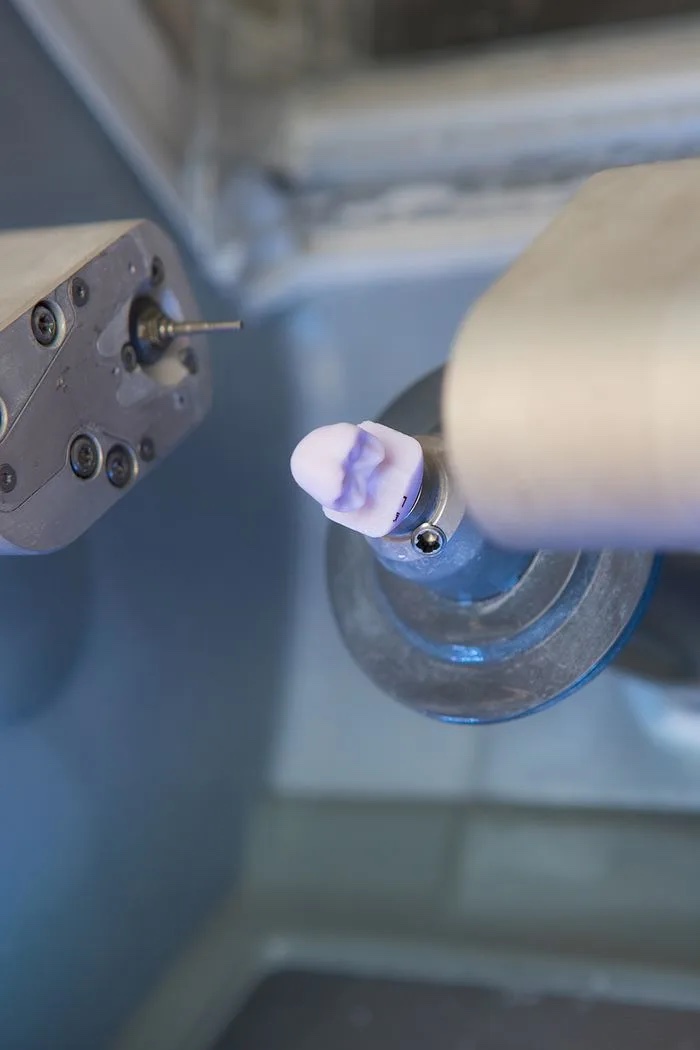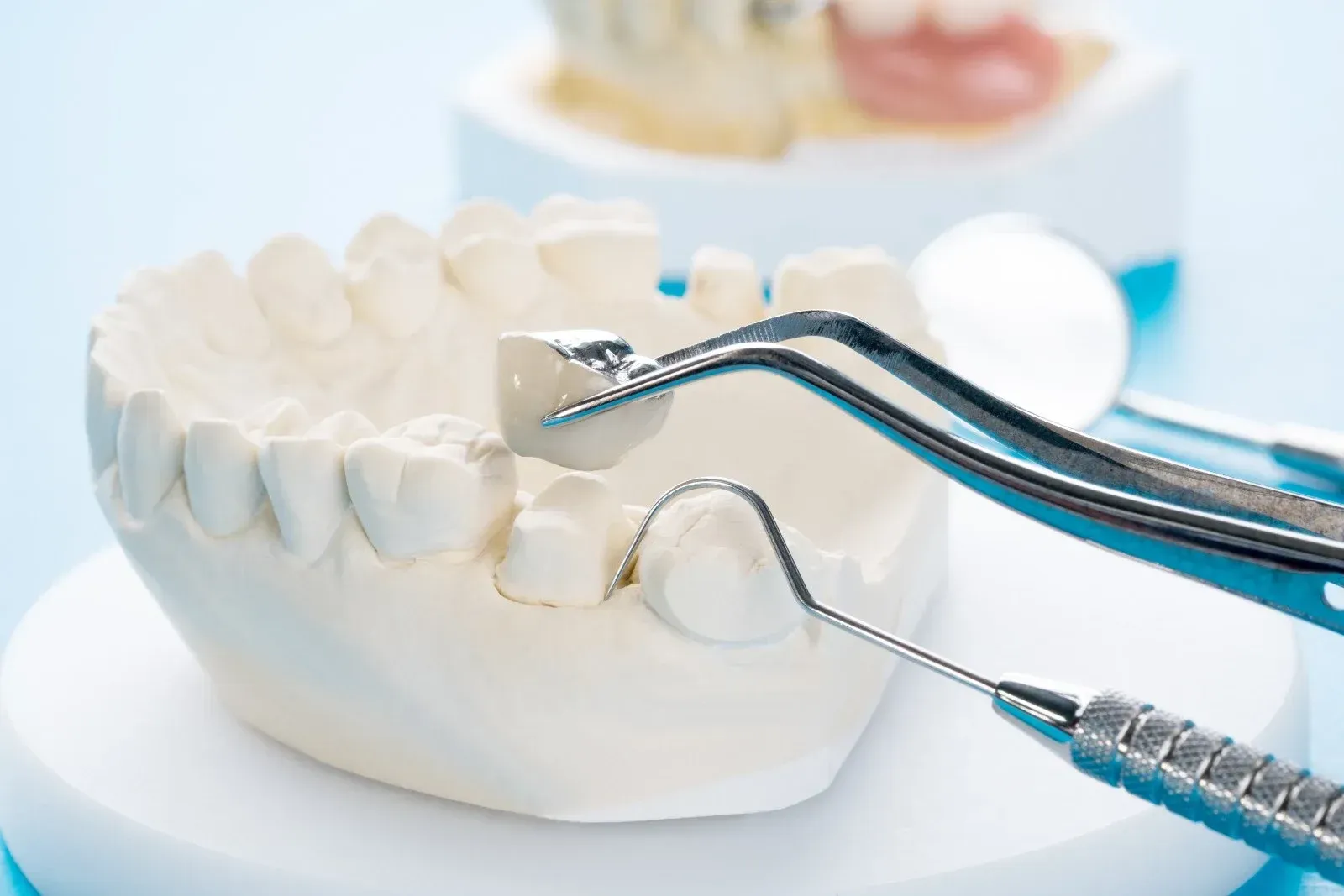Damage or severe decay shouldn’t hold you back from a beautiful, functional smile. Restore your tooth with a natural-looking, durable dental crown. These are custom-made restorations that cover the visible portion of a tooth, reinforcing its structure and protecting it from further damage. They are often used to treat teeth that are cracked, broken, severely worn down, or weakened by large fillings. Crowns can also be placed after root canal therapy or to support a dental bridge. Crafted from high-quality materials, crowns can blend seamlessly with your natural teeth and enhance both function and aesthetics. With proper care, a dental crown can provide long-lasting protection and confidence.
Why Should I Choose Dental Crowns?
Dental crowns are used for a variety of restorative and cosmetic treatments. For instance, they are the recommended treatment option for patients suffering from damaged, broken, or severely decayed teeth. After the damage and decay is cleared and the existing tooth structure is shaped into a sturdy platform, a dental crown can be placed. These tooth-shaped caps cover the natural tooth down to the gum line to protect the remaining tooth while maintaining the look, feel, and functionality of your smile. Crowns are also commonly used to complete root canal therapy or a dental implant procedure.


You can say goodbye to goopy impressions thanks to our 3D Intraoral Scanner. This tool allows us to capture images and create models of your teeth. It’s a fully digital process — no putty necessary.

We work exclusively with our trusted, AACD-accredited dental lab. They specialize in crafting custom restorations that are beautiful, durable, and natural-looking.

Using advanced technology, we can digitally scan your mouth and plan your treatment with precision and efficiency. You’ll even get a sneak peak at your completed smile, before treatment even begins!
Who Is a Candidate for Dental Crowns?
Dental crowns are a common solution for treating teeth that have been impacted by decay or damage. Patients with severe cavities and those who have experienced dental trauma, resulting in cracked, chipped, or broken teeth may also benefit from a dental crown. Additionally, individuals who have undergone root canal therapy often require a crown to complete the procedure as it serves to protect the tooth from future problems by capping it down to the gumline. If you are experiencing pain, discomfort, or have visible damage or discoloration in your teeth due to decay or trauma, you may be a candidate for a dental crown. It’s always necessary to consult with your dentist to see if a crown can help address your oral health concerns. Scheduling an appointment with your dentist will allow for a thorough evaluation and help them determine if a crown is the right solution for you. Crowns can be used in cosmetic cases as an alternative to veneers or dental bonding.
How Long Do Dental Crowns Last?
When crafted and placed correctly, dental crowns have the potential to last up to 15 years. Maintaining good oral hygiene habits, such as brushing your teeth twice daily and flossing once daily, along with regular dental check-ups and cleanings every six months, can contribute to the longevity of your crown. Avoiding habits like teeth grinding, nail-biting, or chewing on hard objects can help preserve the crown’s integrity, while the materials used can also influence durability and performance over time. Additionally, the location of the crown in your mouth plays a role. For example, crowns on molars typically endure more pressure from chewing and may wear down faster than those on front teeth. With attentive care and professional guidance, crowns can remain functional and aesthetically pleasing for many years.
Additional Frequently Asked Questions About Dental Crowns
Check out these frequently asked questions, or call us to speak with our team.
How do I care for my dental crown?
Can a crown be matched to the color of my natural teeth?
Can I eat normally with a crown?
Are dental crowns covered by insurance?
Contact our practice to learn more about dental crowns or to schedule a consultation with Dr. Sasha.


